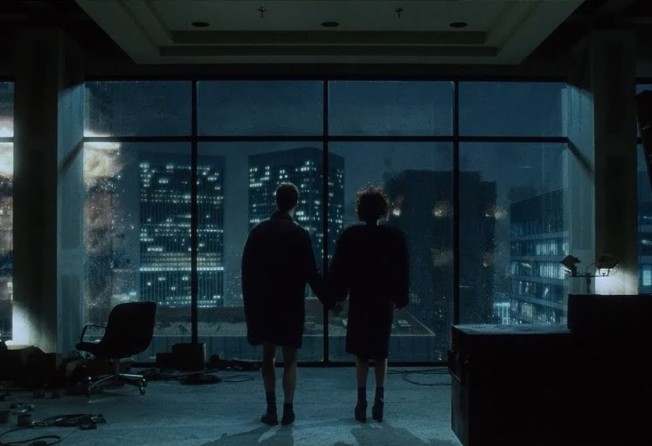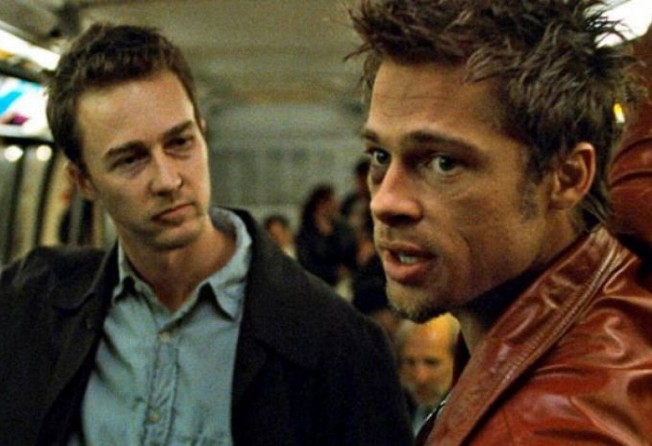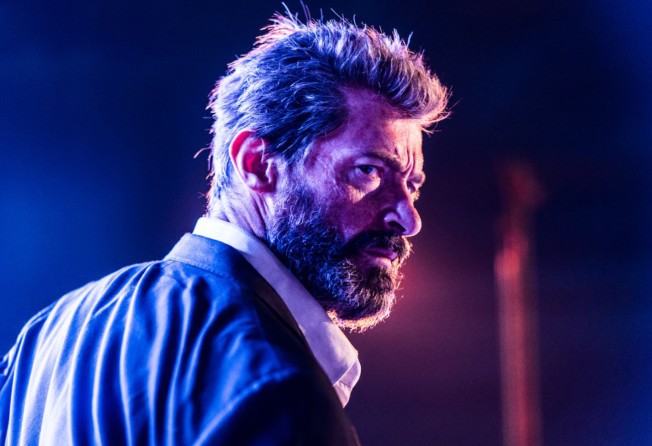
China censors Brad Pitt film Fight Club with alternative, less violent ending, outraging fans
- The ending has been altered on a streaming site to remove a series of explosions; instead, inserted text states everyone involved was either sent to a prison or a mental asylum
- China routinely censors foreign films either in full or partially, including big-budget films

Even major Hollywood stars like Brad Pitt and Edward Norton are no match for China’s censors, as film fans recently discovered the movie Fight Club has an alternative, less intense ending in versions released in China.
In the 1999 David Fincher classic, the film ends with the protagonist shooting himself through the cheek, killing his dangerously controlling terrorist alter-ego Tyler. Then his girlfriend arrives at the scene and together they watch as a series of explosions take place, with buildings in the distance crumbling to the ground.
On Tencent Video, a Chinese video streaming site owned by Tencent, however, the movie ends with the protagonist shooting himself in the mouth. Then some English text appears saying: “Through clues provided by Tyler, the police rapidly figured out the whole plan and arrested all criminals, successfully preventing Tyler’s plan for mass destruction.”
It went on to say that Tyler was sent to a mental asylum receiving psychological treatment and was discharged from the hospital in 2012.

Tencent’s version is 12 minutes shorter than the original, with five minutes cut from the crucial ending scene.
The “new ending” has triggered heated discussion on film and culture forum Douban, where one commentator said angrily that the public is used to seeing censored films, but to invent a completely different ending “was too much”.
“You might as well take that film down, it isn’t ‘positive energy’ anyway,” the user said.
Tencent declined to comment on the matter.
Censorship of scenes deemed “violent” or “pornographic” in China is a routine practice. One film producer told the South China Morning Post that video platforms customarily send television, internet shows and animation to the local bureaus of the National Radio and Television Administration, China’s top media watchdog, for viewing and feedback.
“Sometimes the comments would get really specific on what to cut,” she said. “Mostly it’s violent and pornographic scenes, or on the issue of ‘values’, such as bad guys should not win.”
She said the platforms were then put under pressure to make the suggested change before the films were cleared for release.

When platforms purchase foreign films, sometimes they strike an agreement with the other side and tell them the film would need to go through censorship, but it depends on the specific contract, the producer said.
Foreign films are often censored in China. The 2019 film The Joker was banned from release due to its graphic depictions of violence, while in 2017 Chinese censors slashed 17 minutes from the latest Wolverine movie Logan, having deemed it too violent for audiences.
Films are often censored for political reasons. In 2020, the scheduled release of Nomadland was cancelled due to comments made by the director Chloé Zhao in a 2013 magazine interview in which she described China as “a place where there are lies everywhere”.